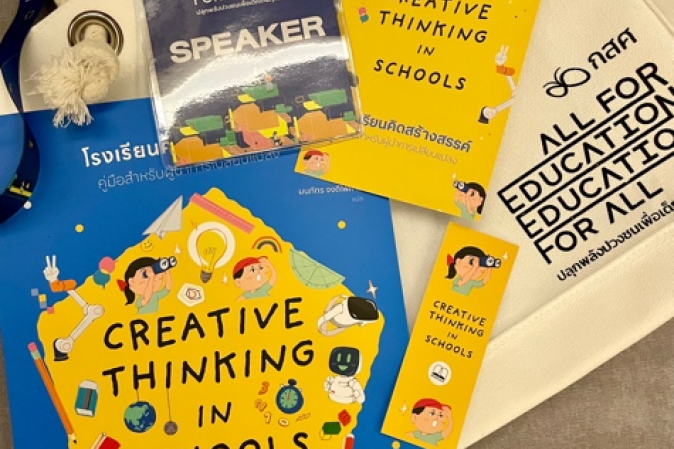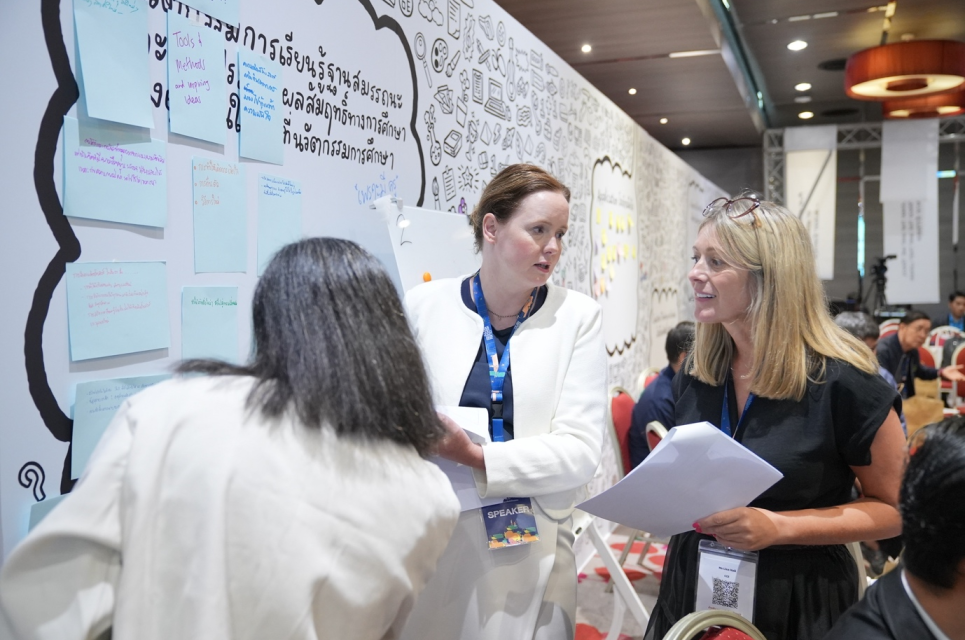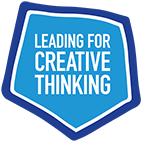English, Welsh and now Thai, our Playbook has made it to Thailand
At CCE, we’ve been working with the Equitable Education Fund (EEF) based in Bangkok for the past four years.

EEF are on a mission to reduce educational inequality and raise the quality of education by supporting and developing teachers’ effectiveness. However, one of their biggest impediments in reaching the latter of these objectives is the limited number of high-quality professional learning resources available in the Thai language.
So, it was such a joy to see delegates piling in for EEF’s 5 th Anniversary Conference, All for Education, Education for All to pick up their gift bags containing a copy of Creative Thinking in Schools: A Leadership Playbook in Thai.
In the recent PISA surveys on Creativity and Critical Thinking, Thai 15-year-olds were placed below the OECD average. Speaking with conference delegates who included school leaders and teachers, school district leaders, ITE providers and researchers and seeing their responses to the Playbook on the publishers book stand; it was clear that everyone was well-aware of the need to develop creative thinking in their children and young people, but as is the case in many territories we work in, they didn’t know how.
Our workshop on the second day took participants through several activities from the Playbook - The Purpose of School, The Creative Habits of Mind, Myths and Assumptions and a Different Kind of Leadership. In ‘the purpose of school’ activity, the common feature that appeared at the top of many of their Diamond 9’s was simply happiness, and when I asked them if that reflects the core purpose of most schools in Thailand today – the sound of sardonic laughter filled the room.

A spontaneous debate broke out during ‘Creative Habits’ as participants questioned the habit of ‘disciplined’. In a country and culture that prides itself on cohesion and discipline, they felt this was the wrong message to convey within creativity, when what’s required is bravery and a diversion from the status quo. They soon came to realise that this habit is referring to a different sort of discipline, a discipline that ensures creativity isn’t just about having great ideas but the will to act on the ideas, and to sometimes bin them and start again.
Some of the participants began to recognise the power and meaning of this one little habit and how it connected to their wish for happiness to fill their schools.
I was joined on this adventure by Lisa Hall, Assistant Headteacher at Cragside Primary School in Newcastle. CCE have been a partner to the North East Creativity Collaborative for the past three years and by now, Lisa is an incredible facilitator of professional learning for creative thinking in her own right.
To close our workshop Lisa relayed how she and her colleagues have put the Creative Habits of Mind into practice; how their purpose of school became their north star as they integrated creativity into their curriculum and pedagogy; how they developed their confidence even when the myths about creativity were not always obvious; and how she developed as a leader of creative thinking. Rather than happiness, the staff at Cragside Primary talk of joy, they joy that leading and teaching for creativity brings to colleagues and most of all, to children.
I, and all the authors of the playbook hope it will make a small difference in Thailand and that more creative leaders emerge filling their schools with happiness, denting the cycle of inequality and setting up children and young people as confident and creative thinkers.
Nia Richards
Director, CCE
